wikiHow is a “wiki,” similar to Wikipedia, which means that many of our articles are co-written by multiple authors. To create this article, volunteer authors worked to edit and improve it over time.
This article has been viewed 13,733 times.
Learn more...
Puberty- the word that provokes awkward or nervous feelings in kids, tweens, and teens all over the world. Puberty is the process of your body growing from a kid's to an adult's. This process is long and drawn out, so the effects will stay for many years. When puberty starts, your pituitary gland produces hormones that help your body grow taller and larger. You gradually develop from an immature, dependent child to an independent adult. In this process, you develop physically (you grow stronger and taller) and emotionally (your brain develops). Since people start puberty at different ages, people from ages 8-16 all have to deal with puberty. This is around grades 3-11 or Years 4-12. Puberty can be embarrassing to deal with in a public place like school, but there are discreet and easy ways to deal with it.
Steps
For All Genders
-
1Deal with acne. Most people get acne like pimples, whiteheads, and blackheads during puberty. This happens when your skin secretes too much oil. The oil and dead skin clogs up your hair follicles, causing a pimple to grow there. You can have many small, painless pimples on places like your forehead, or you could have a few large, painful ones on places like your nose and chin. You may feel self-conscious about your acne, as it is seen as "unattractive" or "ugly" by a lot of people.
- Put acne ointment onto your pimples. Do not pop your pimples. This can make your pimple infected and you could be left with a scar on your face. Put the ointment on daily until the pimple shrivels up and fades.
- During the time of COVID, many people wear masks. You can wear a mask to school to prevent the spread of COVID and to prevent people from seeing your pimples (except when you take it off to eat a snack or to eat lunch)!
-
2Know what to do with pubic, underarm, and chest hair. It is unsure about why people get pubic, underarm, and chest hair during puberty. Some say it could be a way of showing sexual maturity during the prehistoric times, and we just brought that trait with us after thousands of years of evolution. Other people claim that the hair protects us from dust and germs that make us sick. Either way, you can do whatever you want with it.
- Shave your pubic hair, armpit hair, and chest hair if you don't like it. Wash your hairy areas first to make the hair softer, then cut off the longer hairs. Long hairs could get caught in your razor, which could break it. Lastly, you can use your razor (manual or electric) to shave your hair. You could also wax it for another cheap alternative.
- You could also just leave it there. If you're going swimming, however, you may want to trim it a bit, since people will see it if you're wearing a swimsuit!
For Females
-
1Deal with developing breasts. One of the first signs of puberty in females is breast buds. These are hard, nickel-sized bumps on each of your breasts. Females start developing breast buds at ages 9-11, although some can start as early as 8 or as late as 13. [1] These indicate that puberty has begun. Your breasts may feel tender and sore when this happens, so you should prepare.
- Buy a couple of training bras from the store. You'll need these for breast buds. These will better accommodate your growing breasts than flat undershirts. These will also support them more. These will prevent your nipples from poking out of your shirt, making you uncomfortable and embarrassed.
-
2Cope with breasts after the breast bud stage. At ages 9-13, a female's breasts start to actually grow tissue. After breast budding, the areola (the dark circle in the top middle of your breast) gets bigger and darkens. Your breasts will start to grow larger and rounder after this stage, and you may start to feel a bit awkward, especially while running during PE/gym class. They may bounce around and poke out from your shirt, so you should do something to accommodate your growing breast tissue. [2]
- Wear a padded training bra. These are training bras with extra support in them. There is one pad on each cup of the training bra. These are good for if your breasts are too large for training bras, but are too small for cup bras.
- You could also wear a sports bra if you'd like. These offer similar support as padded training bras.
- You can wear both training bras and sports bras underneath your gym clothes/gym uniform. Don't worry; they won't show underneath your clothing, as they flatten your breasts.
-
3Prepare with having your period in school. Many girls dread accidentally leaking during class or having painful cramps during PE. This makes females terrified of having their periods. But, if you're prepared and ready, there is nothing to worry about. One of the things you should know is that the average age of menarche (first period) is 12, but it can range from 8-14 years of age. [3]
- If you start seeing discharge (a sticky/slippery whitish-yellow substance) in your panties, you are likely to get your period in a few months to a few years. Put pantyliners (small, thin pads) in your underwear to prevent the discharge from staining.
- Wash your hands before and after changing your sanitary products, especially during the COVID pandemic.
- Bring a few pads and tampons in a small makeup bag or clutch if you are around the age of getting your period or if you have discharge. You can bring extra pairs of underwear also, in case if you leak. Bring this kit with you into the bathroom for period emergencies. Even if your school has a sanitary products dispenser in the females' restroom, you should still bring your own supplies in case the dispenser runs out.
- Follow the protocol for bringing pain medication. If you need pain medication to alleviate period cramps, you'll need to ask for permission from the school about the rules with medication.
-
4Deal with the awkwardness of a developing female body. Since you're growing breasts, growing hips, and having periods, you may feel different than other females. You might feel like you're growing way too fast, or you may feel like you're barely growing at all compared to the females in your class at school. How fast and when you have puberty depends on genetics. You can't tell your body to grow faster, neither can you eat a certain type of food to grow taller. Let nature take its course.
- Don't worry about what others think! You may feel as if your breasts are barely noticeable or that your butt is huge compared to the other females, but in the end, every female's bodies will round off. Every female will develop breasts and hips, so by the time the females in your class turn 18, you'll look pretty similar in terms of body parts.
- You may look like a 10 year-old when you're really 14, or you may look like a high schooler when you're only 13. If someone accidentally assumes your age, calmly correct them. Many people still judge a book by its cover, so patiently and calmly correct the person if they get your age wrong.
- For how large your breasts are or how tall you are, that depends on the person.
-
5Cope with being self-conscious around males in your class. Females usually start puberty a couple years earlier than males, so you may be way taller than the boys in your class or look older for your age than the boys do. This makes many females feel uncomfortable, added with romantic feelings and crushes happening in elementary, middle, and high school. These feelings may be awkward for a long time, but you can still deal with them.
- If you have a crush on someone in your class, this may be harder or unavoidable. You may feel embarrassed or especially self-conscious around them compared to other boys in your class. You could keep your feelings a secret, or you could confess your love by writing a note to them or directly talking to them after class.
- The boys in your class may look like their age when you look like 13 when you're ten, or they may look 12 when you look 15. Don't worry- they'll catch up soon enough, and they'll end up taller than most females, since they grow for a longer time.
-
6Know how to deal with romantic feelings. Romantic feelings in elementary or middle school can be confusing. You may not know what to do if you have a crush on someone. This is normal, as you are still young and your brain is still developing. If you feel nervous and excited around this person, imagine romantic scenarios with the person in them, want to spend a ton of time with this person, or become extra talkative, flirty, or shy around the person, it is certain that you have a crush on this person.
- If you have a crush in elementary school, wait a few weeks to see if the feeling of love is still there. Elementary school romance does not last long, as kids are still immature and gullible at this age. Most do not know how to deal with relationships well enough for a romantic one to last long. You can try to ask your crush out though- just don't get any further than hugging and holding hands.
- For middle school crushes, you can definitely catch your crush's interest by sticking a note on their locker. Make sure no one besides them sees, though! You could also confront the person during break and bravely confess your feelings. Understand that if you have a crush on a male, they may be too immature to have a romantic relationship with you (as they go through puberty at a later age and their brains mature slower).
- If they reject you, move on. There are plenty of other fish in the sea, and you will have more crushes than just this person. In high school, you will likely forget about this person anyways.
- If the person accepts, invite your partner to a date together! Dance and do fun activities with your crush. Don't go any further than holding hands, cuddling, and hugging, though.
- For high school crushes, you can try flirting and confronting the person about your feelings. You could also hide a love letter in your crush's desk, although your crush's classmates could find out, risking the whole school knowing who you have a crush on. If you both are committed to this relationship, it can last your whole high school years or even until college, university, and beyond!
- Make sure you two talk about sex and consent, though. Do not feel pressured to have sex even though a bunch of people in your class are not virgins anymore. Always use condoms, as there is a large risk of contracting STDs (sexually transmitted diseases) and urinary tract infections with unprotected sex. You could also get pregnant, which is not something you want to deal with at such a young age.
For Males
-
1Cope with random erections. Hormones are often produced at different rates, so the hormones that control erections will be erratic when puberty begins. Pubic hair and the growth of your penis and testicles will be the first signs of puberty in males. Erections can strike at completely random times, even if you're not thinking about a hot celebrity or your crush at school. There are a couple of ways to make erections subside faster.
- Hide your erection. If you have a long shirt, pull it over your pants so that it covers your crotch. If you're wearing a uniform, not tucking in your polo shirt may go against dress code, so wear a long uniform jacket instead. You could also put your backpack on your lap (if it's a non-rolling backpack) or a book on it to cover your erection up.
- Put your hand in your pocket to cover it up, although this is pretty noticeable. Unless you always stand or walk with your hands in your pockets, others will notice. If you're sitting, cross your legs. This temporarily hides your erection.
- Think of boring things. Do mental math by rounding, doing arithmetic, calculating areas, and doing other work in your head. You could also think about the test that's coming up in 2 days or something that keeps you busy.
- Lightly pinch yourself near your thigh. This may distract you from your erection.
-
2Understand how to deal with a changing voice. Males usually start developing a larger Adam's apple at the ages of 10-15. The Adam's apple is the noticeable region of the voice box/larynx. Males have more prominent ones, and they look like a bump on someone's throat. Whenever males talk, their Adam's apple moves around. Males usually have a voice change right before or during their growth spurts. [4] When your voice develops, it may sound weird at first. [5] Your voice will crack a lot, and you may feel as if your voice sounds like an old man's voice or a goat's bleating. Know that this is normal, and most males go through this.
- Drink some water. If your voice is going to crack, drink some water. Dehydration makes your voice sound worse, and it will sound more hoarse and weird. You can also clear your throat if that helps.
- Don't care what others say. Sure, you may internally cringe when you're called to answer a question since your voice sounds terrible. But, there is no way to decrease the amount of voice cracks and awkwardness. You'll need to wait many years until your voice is finally your adult voice. If someone's bullying you because of your voice, tell a trusted adult at your school and/or your parents.
-
3Cope with growing facial hair. You may be one of the first or one of the last males in your class to get this, since everyone grows at different rates. Facial hair makes you look older and more mature, so think of that as a benefit. Some males get a lot of facial hair, whereas others barely have any. It just depends on your genetics! If you know how to style your facial hair, it can make you more attractive. Your facial hair can match with the clothing and/or accessories you wear to school, making you feel confident.
- You can style it into a mustache or beard. You can also shave it off.
-
4Deal with the awkwardness of a developing male body. Since you're growing taller, getting pubic hair, developing a lower voice, and having erections, you may feel different than other males. You might feel like you're growing way too fast, or you may feel like you're barely growing at all compared to the males in your class at school. How fast and when you have puberty depends on genetics. You can't tell your body to grow faster, neither can you eat a certain type of food to grow taller. Let nature take its course.
- Don't worry about what others think! You may feel as if you are way shorter than the males in your grade level, or you might look like a giraffe compared to the males in your class. This is to be expected, as all people grow at different rates.
- You may look like a 10 year-old when you're really 14, or you may look like a high schooler when you're only 13. If someone accidentally assumes your age, calmly correct them. Many people still judge a book by its cover, so patiently and calmly correct the person if they get your age wrong.
- For how large your chest is or how tall you are, that depends on the person.
-
5Cope with being self-conscious around males in your class. Males usually start puberty a couple years later than females, so you may be way shorter than the girls in your class or look younger for your age than the girls do. This makes many males feel uncomfortable, added with romantic feelings and crushes happening in elementary, middle, and high school. These feelings may be awkward for a long time, but you can still deal with them.
- If you have a crush on someone in your class, this may be harder or unavoidable. You may feel embarrassed or especially self-conscious around them compared to other people in your class. You could keep your feelings a secret, or you could confess your love by writing a note to them or directly talking to them after class.
- The girls in your class may look like 15 when you guys are only 13, or they may look 18 when your class is only full of 13-14 year-olds.
-
6Know how to deal with romantic feelings. Romantic feelings in elementary or middle school can be confusing. You may not know what to do if you have a crush on someone. This is normal, as you are still young and your brain is still developing. If you feel nervous and excited around this person, imagine romantic scenarios with the person in them, want to spend a ton of time with this person, or become extra talkative, flirty, or shy around the person, it is certain that you have a crush on this person. You may also have frequent erections around the person, which is an important sign of romantic interest in males.
- If you have a crush in elementary school, wait a few weeks to see if the feeling of love is still there. Elementary school romance does not last long, as kids are still immature and gullible at this age. Most do not know how to deal with relationships well enough for a romantic one to last long. You can try to ask your crush out though- just don't get any further than hugging and holding hands.
- For middle school crushes, you can definitely catch your crush's interest by sticking a note on their locker. Make sure no one besides them sees, though! You could also confront the person during break and bravely confess your feelings.
- If they reject you, move on. There are plenty of other fish in the sea, and you will have more crushes than just this person. In high school, you will likely forget about this person anyways.
- If the person accepts, invite your partner to a date together! Dance and do fun activities with your crush. Don't go any further than holding hands, cuddling, and hugging, though.
- For high school crushes, you can try flirting and confronting the person about your feelings. You could also hide a love letter in your crush's desk, although your crush's classmates could find out, risking the whole school knowing who you have a crush on. If you both are committed to this relationship, it can last your whole high school years or even until college, university, and beyond!
- Make sure you two talk about sex and consent, though. Do not feel pressured to have sex even though a bunch of people in your class are not virgins anymore. Always use condoms, as there is a large risk of contracting STDs (sexually transmitted diseases) and urinary tract infections with unprotected sex.
References
- ↑ https://www.healthychildren.org/English/ages-stages/gradeschool/puberty/Pages/Physical-Development-Girls-What-to-Expect.aspx#:~:text=Breast%20Development,one%20side%20before%20the%20other.
- ↑ https://kidshealth.org/en/kids/breasts-bras.html#catbreasts
- ↑ https://kidshealth.org/en/kids/period-school.html#catperiods
- ↑ https://www.verywellfamily.com/what-to-know-about-puberty-and-voice-changes-3200893
- ↑ https://kidshealth.org/en/kids/puberty.html#catbody-stuff
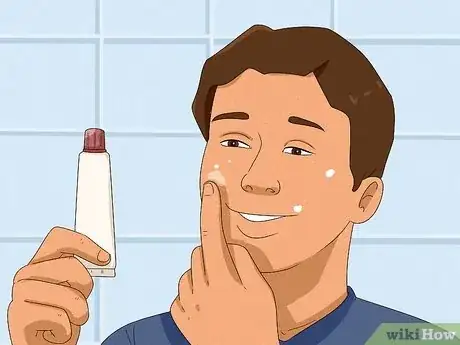
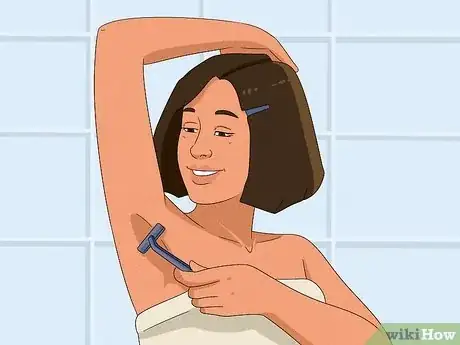


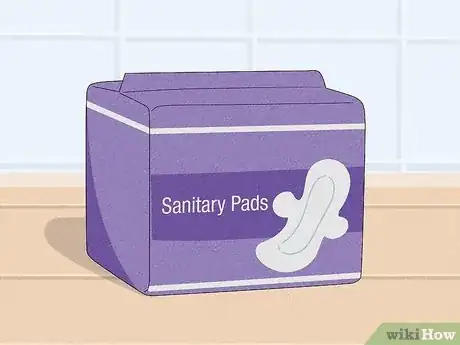
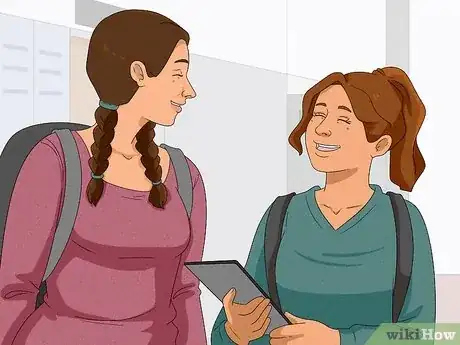
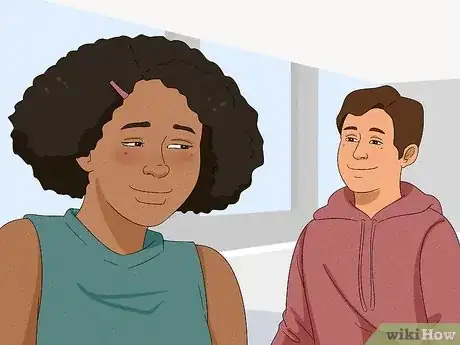
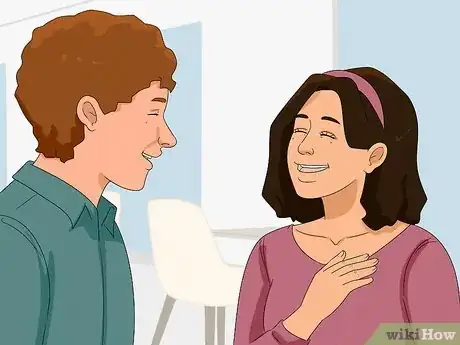
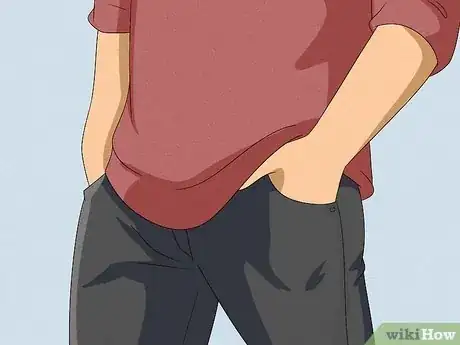
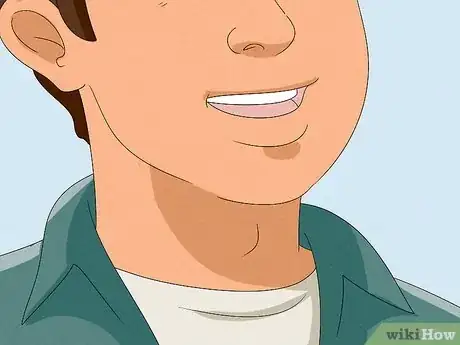
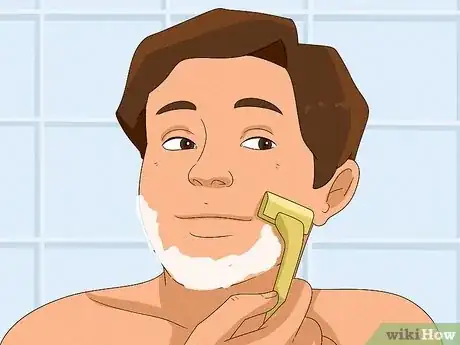


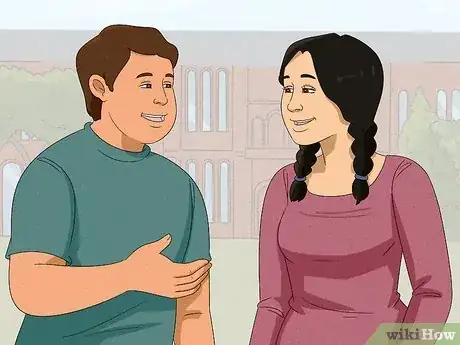

-Step-12-Version-6.webp)

-Step-12-Version-2.webp)

-Step-16.webp)
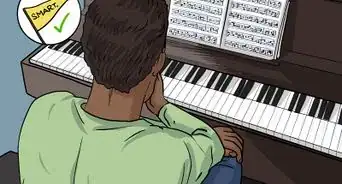
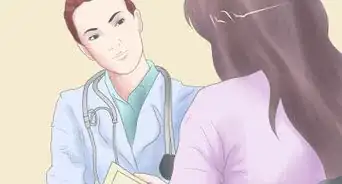


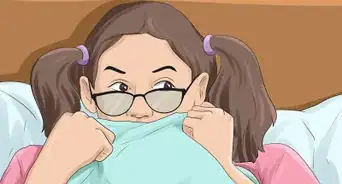
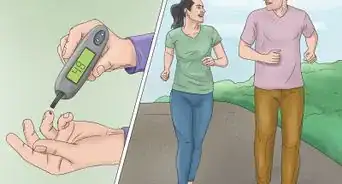

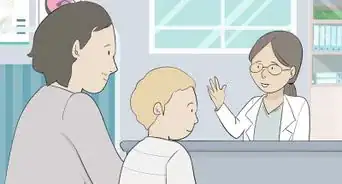






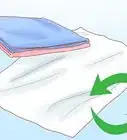
-Step-12-Version-6.webp)
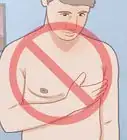
-Step-12-Version-2.webp)


































